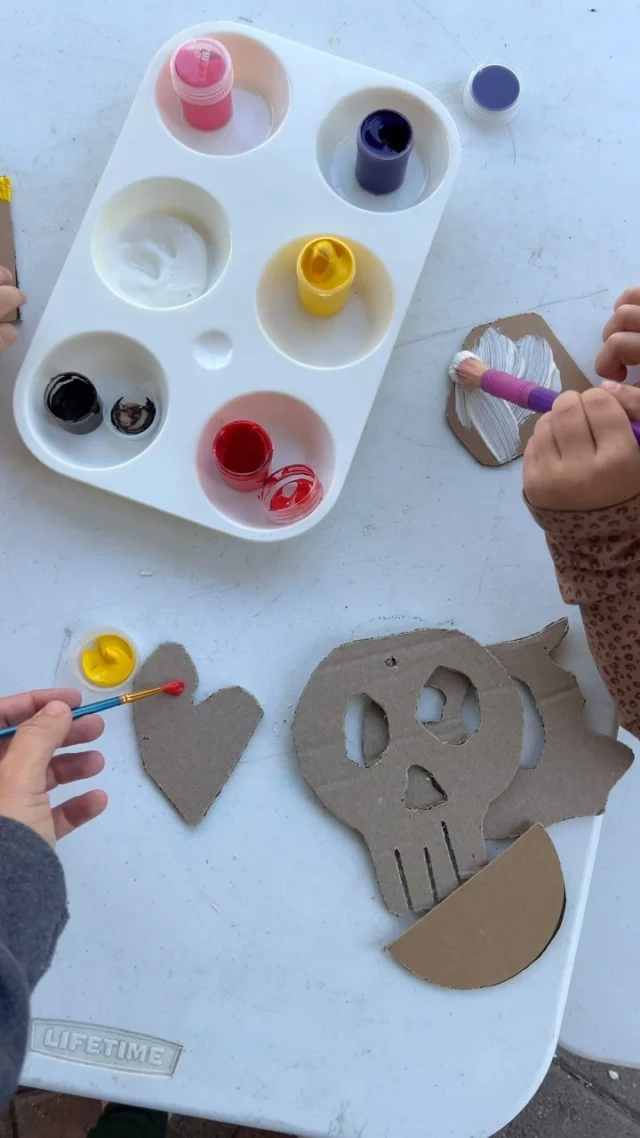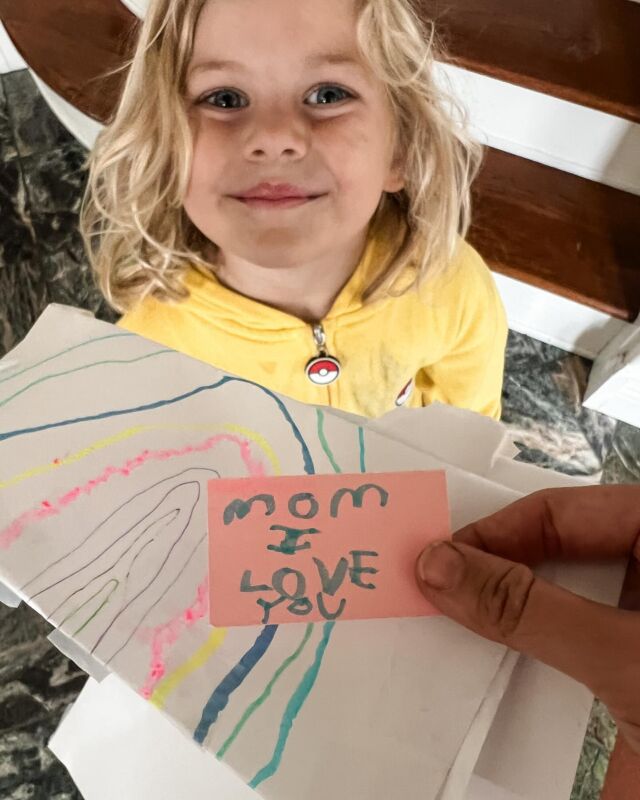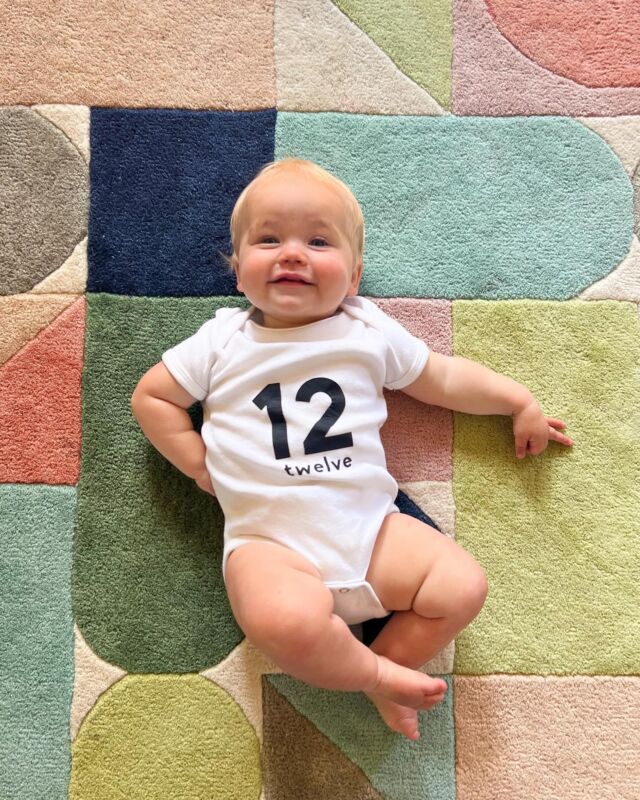

I read this book by Sharon Hodde Miller and it’s one of those books I wish I had read 10 years earlier. It is now on my list of books to gift to teenagers because it is the perfect way to realize that life is so much better when you don’t center it around yourself. Here is a sort of summary and collection of my favorite parts.
“It’s not about you.”
By focusing less on ourselves and more on Christ, we become our truest selves. He wants us to become the creations he intended all along, dignified, good, reflections of him. The image of God in us was marred by the effects of sin, but it is restored to us in Christ every day.
I was Narcissus. I was transfixed by my own reflection and suffering a slow spiritual decay. By making my relationships and my ministry about me, my confidence was bound up in their successes or failures. A successful writing ministry meant I had value. Successful friendships meant I was lovable. But the reverse was also true, which left me devastated and insecure. This is the natural course of all idolatry. Whenever we put anything before God, it’s only a matter of time before it turns on us.
When you make things about you that are not about you, it’s a terrible burden. Living for yourself is a crushing weight. Deep down, we all know that if we could stop trying to people-please, stop trying to measure up, stop focusing on our flaws, and stop dwelling on rejection, life would be a lot easier. If we could only focus a little less on ourselves and a little more on God, our shoulders would feel so much lighter.
Self-focus hurts our relationships, shrinks our faith, kills our confidence, and ultimately steals all our joy.
The “Need” for Affirmation
Although my confidence did not stand on my appearance, it stood on something equally flimsy, which was a deep-seated need for affirmation. Because I was such a good kid, I received a lot of praise, and soon that became my identity. I needed the praise, which meant the line between doing good for goodness’ sake and doing good for appearance’s sake became increasingly blurry. After a while, I wasn’t sure if I was nice to people because it was Christlike or because I so needed the acclaim. Maybe it was both.
We treat people as if they are a reflection of us and our self-worth. Affirmation and praise give us a positive self-image, while criticism or rejection gives us a negative one.
First, your self-image is shaped by people, possessions, and profession. You look to these things to determine your self-worth. When the reflection is good, you feel great about yourself. When the reflection is bad, you feel insecure. Second, you make everything about you, even when it’s not about you.
Self-Esteem
High self-esteem can’t give us the freedom and wholeness our souls crave, because high self-esteem is a mirage. It promises something it does not possess. In fact, the pursuit of it is just a distraction.
There is a second root cause of insecurity, which is self-preoccupation. Self-focus assumes that every slight, every rejection, every awkward interaction must be about you. Self-focus raises the stakes of dating, parenting, working, and serving by turning it all into a referendum on your worth. Self-focus also magnifies your flaws, because you are constantly aware of them.
People Pleasing
People-pleasing is a funny thing, because it seems “others-focused,” but it’s not about others at all. It’s about you. You want other people to think well of you. You want people to say nice things about you. You help and you do favors and you struggle to say no because you don’t want people to be mad at you. Yes, your self-confidence hinges on the well-being of others, but at the end of the day people-pleasing is really in service to yourself.
Kindness vs. Niceness
For many Christians, our niceness isn’t about witnessing to Jesus but getting people to like us. That’s why kindness, not niceness, is a fruit of the Spirit.
The Answer is Self-Forgetfulness
For many of us, the problem is not that we think poorly about ourselves. The problem is that we can’t stop thinking about ourselves. All this talk about self-esteem and being our truest and best selves has turned the world into one giant mirror pointing back at us. That’s why self-forgetfulness, not high self-esteem, is the answer.
What I soon discovered is that self-forgetfulness is hard, because self-focus is a human default. It’s not enough simply to want self-forgetfulness, or to affirm it and call it good. Self-forgetfulness comes through intentionality, and it takes time, but its fruit is freedom.
Where is my Focus?
The problem is, many of us are running distracted. We’re stumbling through life because our focus is off. It’s an easy mistake to make in a me-centered world. When we’re dealing with insecurity, brokenness, and fear, the world says, “Focus on YOU! You are great. You are special. You are perfect just the way you are.” This message even has a God spin to it: “God has an amazing plan for you!”
The problem was my focus. I couldn’t enjoy the freedom of living for Christ, because I wasn’t living for Christ. I was living for me. My eyes were fixed on me.
I was a distracted runner. I couldn’t sprint toward the prize because my eyes were fixed inward, so I decided to get a new focus. I was done living for me, my reputation, my glory. I wanted the freedom of self-forgetfulness.
In reality no one thinks about me that much, because most people are just doing the best they can. In fact, most people aren’t thinking about you or me at all, because they are focused on their own lives and their own families.
We can’t cure our narcissism by trying to ignore ourselves. The solution is to stare at God.
“The weight of self-focus was never meant to be.” It was never God’s desire for us. We were never meant to treat everything in our lives like a measuring stick pointing back to us. We were never meant to carry that burden. That’s why God doesn’t simply invite us to throw the burden down; he commands it.
Blind towards Others & God
The “snub” was not a rejection at all, but instead a sign that she needed love and care. That’s what happens when our friends are just mirrors reflecting on us: perceived rejections magnify our own insecurity, and consequently blind us to the needs of others.
When we make rejection about us, it’s hard to see God’s redemptive work because we can’t see past ourselves. Our focus is so thoroughly inward, that we don’t see the plans he has for our pain. But as Romans 8:28 reminds all of us who love him, God always has good plans.
When we are so distracted with ourselves and our own lives, we never get to the work of actually living out our faith. There is a whole world out there of brokenness and poverty and hunger and pain, begging to hear the good news of Christ, but we will never reach them if we’re too focused on building our best lives now. That is Satan’s great achievement: using good, true messages of Jesus to steal our attention from Jesus’s work.
The World’s View of Freedom vs. God’s View of Freedom
From a worldly perspective, freedom usually means independence, the liberty to do whatever you want. From a gospel perspective, “freedom” is freedom from sin and the flesh, not to live however you want but to live for God.
Freedom means you are no longer bound by the tyranny of self, but you are free to focus on Christ. It’s not about greater independence, but greater dependence on God. That’s the kind of freedom we were built for.
The Bible is Not About You
“A subtle misunderstanding about the very nature of the Bible: I believed that the Bible was a book about me.”
Moses made a similar mistake. When God instructed him to go and speak to Pharaoh, Moses was filled with self-doubt. He worried, “Who am I that I should go to Pharaoh?” By posing the questions in that order, Moses placed himself at the center of the story. God responded by gently correcting Moses and placing himself back at the center: “I will be with you,” a statement Wilkin summarizes this way: [God] answers Moses’s self-focused question of “Who am I?” with the only answer that matters: “I am.”
Moses felt inhibited by his weaknesses. He didn’t feel capable of speaking to Pharaoh or of leading the Israelites out of Egypt, because he only saw his disqualifications. And how did God respond to Moses’s doubt? Not with a self-help pep talk. He didn’t affirm Moses’s leadership or his talents or gifts. He didn’t hug him and cheer for him and speak encouraging words over him. God didn’t do any of those things, but instead he changed the subject. God affirmed his own strength, his own leadership, his own self, because the outcome never hinged upon Moses. This story was not about Moses’s strengths, and Moses was never meant to be the hero. Only God could deliver the Israelites out of Egypt, so he directed Moses’s focus back to him.
That’s why God isn’t interested in making us feel better. He has no use for superficial clichés or cutesy statements that make us feel good in the moment. Not if they keep us from doing the hard work of dying so that we can truly live. He is equally uninterested in reinforcing self-deception by allowing us to deny our own sickness. God wants us to see the parts of ourselves that are broken, so that we welcome his healing instead of denying we need it.
My heart was wrapped so tightly around my idols that God’s attack on them felt like an attack on me. But it was a grace. God was saving me from myself.
The Mirror Analogy
Whenever I experienced rejection, obscurity, invisibility, exclusion, failure, or disappointment, something very specific happened: my mind spiraled out of control. My thoughts raced with questions like “What’s wrong with me?” and “Why am I not good enough?” and “What could I have done differently?” In other words, the wounds didn’t simply fuel my insecurity, but my self-focus too. And all the positive self-talk in the world didn’t help.
Our counselor explained that there are times when our thoughts spin out of control. They practically take on a life of their own, feeding on each other and gaining power. When this happens, when our train of thought goes off the rails, we have to intervene. We have to stop the train.
The only path out of self-focus is self-forgetfulness, which is why Christian messages about “believing in myself” weren’t helping me. Instead of solving the problem, they were contributing to it. Rather than pry my gaze off of myself, they simply handed me a mirror with a Jesus tint. What I needed was freedom from thinking about myself, even when the thinking about myself was positive.
All those messages I had been hearing—about how special I was and how God had a perfect plan for me—I was taking them and breaking them a little. I was turning the Bible into a book about me. I was turning God into a God about me. My eyes were focused on me. I had made God into a mirror, and although the image was a positive one—and a truthful one—I was still living for myself.
All this talk about self-esteem and being our truest and best selves has turned the world into one giant mirror pointing back at us. That’s why self-forgetfulness, not high self-esteem, is the answer.
Four Different Forms of the False Me-Centered God
Naming these gods is the first step in refocusing on the one true God.
The self-help god
God cares about our insecurities, and his Word does address them, but the difference between a self-help god and the true, living God is focus. The one true God responds to our insecurities with reassurances about himself. In doing so, he releases us from the source of our paralysis, shifting our gaze from the “can’ts” to the One who can. Like in the story of Moses above.
The self-serving god
The self-serving god exists to serve you, to make your life easier and better. This version of God gives you every desire of your heart and makes all your dreams come true. He wants you to be comfortable and happy, even successful and wealthy. This version of God is all about what God can do for you.
The self-exalting god
The self-exalting god exists to make you look good in public. You follow this god so that everyone will like you and think you’re a good person. The self-exalting god also exists to make you well-known. Unlike us, he shares his glory. Human glory is typically selfish and competitive, but God’s glory is a generous glory.
The self-image god
“You can safely assume you’ve created God in your own image when it turns out that God hates all the same people you do.” That is exactly how these religious leaders, who were supposed to know God best, failed to recognize him in their midst: he didn’t look like them.
Many of us do the very same thing whenever we judge other Christians against a “list”—the way they parent, the movies they see, the way they dress, the politicians they vote for, or anything that is different from us. We must be wary of making God into our own image.
Viewing God in the image of myself might feel comfortable and affirming, and it might give me a perch to look down on others, but it will not give me life.
The Real God we Worship
When we make God about us, we miss something essential about him and ourselves. The “special sauce” of the gospel is not that it makes us feel good, but that it calls us into something bigger than ourselves.
Joy
Rather than despair or grow bitter, Paul chose to rejoice, using the word “joy” more times here than in any of his other letters. This prison epistle is a master class in contentment.
Paul’s joy was rock solid because it stood on solid rock. His joy didn’t rest on his success or his reputation or the opinions of others. He wasn’t bothered by criticism—even from other Christians—because he didn’t care about his glory, but God’s.
I surrounded myself with people who would encourage me to focus on Christ instead of competition. And slowly, my joy returned.
That was the secret of Paul’s contentment. He didn’t simply will himself to feel content. Instead, he looked for the purpose in his imprisonment. He figured out how to love God and love others in his particular situation, and that sense of purpose was a part of his joy.
Image Management
She called it image management, and it’s exactly how it sounds: when you “manage” how people see you. It takes an endless number of forms, like the need to appear attractive, happy, successful, organized, or smart, and just like the mirror reflex, it treats everything in your life as a reflection on you.
Image management is one of the ways we treat family like a mirror. Rather than seeing them—who they are, what they need, and how to love them—we see ourselves, our aspirations, and our fears.
A husband makes a bad pun, and his wife’s body language says it all: “I do not endorse.” This is classic image management.
Image Management in Marriage
Image management might seem relatively harmless, but there are a few reasons why it’s unhealthy. First, it places unfair pressure on your relationship by saddling your spouse with your own insecurities. Second, it is dishonoring to your spouse. Image management rarely expresses itself graciously. It is more likely to come out in the form of condescension, sarcasm, or plain old meanness. Third, it diminishes your spouse. Rather than appreciating your spouse for who they are, you are constantly judging them. You can’t enjoy them for who they are, and you might even wind up belittling them.
One of the first steps to avoiding image management is simply to name it. Knowing about this habit is powerful, because you will begin to recognize it when you’re doing it.
As Christians, that is our challenge and our call. Family was never meant to be a pawn in the game of image management, because it was never meant to be about us. For us, yes. About us, no.
I believe marriage is a sacrament, an outward sign of divine grace. Living out that sacrament and engaging in real forgiveness is what keeps my husband and I from becoming rigid, hollow people—not trading our spouse in when we feel bored or disappointed or not “happy” anymore.
No marriage works if you run when things get hard. If your marriage exists solely to make you happy, it won’t last. And it’s the same with the church. If happiness is your primary requirement, you won’t stay long.
Image Management in Parenting
Your child bites another child, picks on a kid at school, disobeys a teacher, or doesn’t start reading as soon as her peers, and each one feels like a referendum on your parenting. It’s a natural reaction, but it’s one we must fight.
Whether we have children or simply hope to, children are not the fulfillment of our identities, and they should never be asked to bear that weight. The Christian identity can stand on no person—spouse or child—but on Jesus Christ alone.
And when we treat our kids like a reflection of ourselves, they get wrapped up into our constant need to be “enough.”
He covers our sins and our innocent shortcomings, which means “Christian parenting” is not perfect parenting, but parenting under the grace of Christ. Our call is not to be flawless parents, but to point to the Parent who never disappoints.
The martyr complex leaves a wake of frayed nerves, short tempers, and constant worry, while Christlike sacrifice has the look of our Savior. Like Stephen, like Paul, we exude joy, peace, and patience, even when it doesn’t make sense.
Parents do not delight to watch their kids suffer, and they will do anything to spare them the pain. Yes, parents enforce discipline and the discipline hurts, but it’s only dispensed as a last resort. Our heavenly Father is the same. His desire is to shepherd us, not rake us over the coals. He never delights to undo us. God doesn’t sit in heaven scheming new ways to make us suffer. He is more interested in rescuing us from suffering.
Loving God & Others
For the first eighteen years of your life, your parents know you better than just about anyone else, so they naturally influence the way you see yourself. How they love you, nurture you, encourage you—or fail to—shapes your self-image profoundly.
The purpose of family is to love God and others. The purpose of marriage is to love God and others. The purpose of parenting is to love God and others. That’s the answer to the question. We learn to love God and others inside our families, where our hearts are refined by the fires of intimacy and daily life together. However, the strange math of it all is that the better we love our families, the better we will love people outside our families. Love begets love.
The purpose of your family is to love your family and other families. The purpose of your marriage is to love God and the world better than you could have done it alone.
A Greater Call than Marriage & Parenting
In 1 Corinthians 7:8, Paul addresses unmarried people and widows, saying, “It is good for them to stay unmarried.” In verses 32–34 he explains his logic, arguing, “An unmarried man is concerned about the Lord’s affairs—how he can please the Lord,” whereas a married man is “concerned about the affairs of this world.”
There is a calling greater than family. Family is good and beautiful and God-ordained, and it can absolutely participate in the call, but it was never meant to be an end in itself. Whatever we do, and wherever life takes us, the mission is always higher. That mission—not our perfect marriages or successful kids—is what makes Christian families so different.
Self-Image & Body-Image
Body image is not about us, but our bodies are a part of us. We can’t separate our exteriors from who we are, because God made each of us to be whole people, body and soul. Our bodies are not all of us, but they are a significant part of us. If our physical bodies weren’t important, Jesus wouldn’t have taken on physical form. But he did. He took on human flesh so that he could redeem all of us, both our bodies and our souls. This means that “what’s inside of you” is NOT all that matters to God. Your outside matters too, because everything about you matters to God. Your entire self was created with a purpose, which means your appearance is not the enemy. Your body, your face, your hair, your eyes, all of it is “good.” At the beginning of time, God declared it to be so. Where we go wrong is overemphasizing that goodness and making it about us. When appearance becomes a sum-total reflection of our worth, that’s when things go haywire.
Our bodies are not the enemy either. We often blame our bodies for undermining our souls, but the two are not at war.
“Choose compassion over comparison.”
Comparison
Once again, this is the power of focus. Vision determines direction. If our eyes are fixed on those with more, our hearts and lifestyles will follow.
When we make our stuff about us, our souls shrivel and crumple in on themselves. It’s one of the fastest shortcuts to discontentment and a life of striving. Vanity is, in fact, painful. We give that pain labels like “envy” and “comparison”—and many times, it is—but the cause of the pain, at its core, is a false hope in things.
The trouble is, when we succumb to the pressure of culture, we end up participating in it. Rather than lower the bar for other women, we raise it even higher.
Too often, appearance becomes a relational barrier, when God intended it as a bridge. I try to consider whether my appearance will encourage relationship or distract from it; is it a bridge to the gospel or a barrier?
Every single bit of you, from the tips of your toes to the depths of your soul, was created with purpose, and that purpose is to love.
Modesty
Merriam-Webster defines modesty as “the freedom from vanity.” However, modern teachings on modesty sometimes miss this definition, focusing instead on covering women’s bodies. What a lot of people don’t know is that this passage is a caricature of wealthy women of the day. Paul wasn’t as concerned with women’s hemlines as he was their extravagance. He was discouraging them from flaunting their status.
This context is important, because some of the most popular teachings about modesty—which focus on sexual modesty—can miss the principle underneath it. The truth is, modesty is about much more than covering up. These verses appear within a larger context about worship, which means Paul had one priority in view: God’s glory. He was urging men and women to pursue a modesty by which their glory was decreased and God’s was increased. In that sense, modesty is about the orientation of our heart—our hearts should be oriented toward God’s glory instead of our own—and this principle lays claim to everything in our lives.
Generosity
We cannot be content to look at our things and passively remind ourselves, “I shouldn’t love them too much.” That mind-set has zero accountability and is discernible to no one. The only way to bear witness to the Giver, and the only way to prevent our possessions from possessing us, is to develop a habit of generosity.
Many times, we limit this redemptive work to our biggest wounds, while ignoring or brushing off the smaller ones. Tragedy, grief, and loss have a way of naturally turning us outward, because they lay us flat on our backs. We can’t ignore the pain because it’s too consuming.
However, we are less likely to look for redemption in the small stuff, like feeling unattractive or unprepared. Our small cuts seem too trivial. In those moments, when we feel a flush of embarrassment or a tinge of failure, we don’t typically think, “How can God use this for good?” Instead, we either try to move on quickly, or we wallow in hurt feelings and self-doubt.
I never saw insecurity as an opportunity to love people better. I rarely turned my thoughts any higher than myself, so I remained stuck in my own self-focus. In doing so, I failed to recognize that no wound, and no experience of insecurity, is below the redemptive work of God. No matter how little or inconsequential the bruise, God can use it for more. When we assume our wounds are below the attention of God, we choose not to invite him into them. We stop redemption at the door.
Her words flicked on a light in my brain. Rather than wiggle out from under my insecurity or shoo it away with affirmation, I could view my insecurities as a bridge. In fact, my insecurities could connect me to other women by helping me understand them in a way I hadn’t before. I could receive my insecurities as preparation.
When insecurity strikes, the question we must ask ourselves is, How can I turn this into love?
Suffering/Sacrifice vs. Comfort/Convenience
God-centered callings involve suffering, sacrifice, and looking like a fool, because this is the path of the Savior we follow. If your calling is about your image, or your reputation, or your comfort and convenience, it will eventually diverge from the path of Christ. At some point, God will ask you to do something that isn’t about you, or doesn’t feel good, or requires you to suffer, and you will have to make a choice.
“Chasing meaning is better for your life than avoiding discomfort.”
“Living” Sacrifice
In Romans 12:1–2, Paul tells us to offer ourselves as living sacrifices, and that is our “true and proper worship.” The term “living sacrifice” always stood out to me, because it’s such a strange thing to say. In Paul’s context, the term “sacrifice” would have conjured images of spotless lambs and unblemished goats, offered at the temple to God.
To make a sacrifice was to make a declaration of trust in God. It was a tangible sign of belief in his provision and his value. A sacrifice signified that God was worth more than anything we might possess.
A “living” sacrifice, then, is the human embodiment of those things. It’s a lifestyle that demonstrates our confidence in God, as well as his priority in our lives. The word worship literally means “to ascribe worth,” so Paul was saying, “You are a living testimony of God’s worth. Everything you do points to his glory.”
Our Call to Gather
For many of us, we treat Jesus and the church as a means to a more comfortable and sheltered life. It is so tempting to construct a world in which our schools are Christian, our music is Christian, our companies are Christian, and our only friends are Christian. We clump together in our Christian corners, where we don’t have to interact with anyone who is unlike us, anyone who comes from a different background, and we call it community. But really, it’s an escape. It’s also not the calling we as the church have received.
“If wholesome and safe is our compass, then we will always choose convenience over obedience.”
Our call is not to gravitate toward people like us but to gather strangers and turn them into family. To gather enemies and turn them into friends.
God calls us to build the bridges that no one else will build. He calls us to overcome barriers no one else will overcome. Our friendships should be so radical, so illogical, so unlike anything else we see in the world, that we are known for them.
Learning to be in community with people who are different, learning to trust imperfect leaders, learning to listen to people with whom you disagree, learning to forgive and reconcile with people who hurt you—this is all the work of the church. It’s all the stuff of a deep and lasting faith, but we miss out on it if we leave at the first sign of trouble.
The sum of these conversations taught me a few things, and the first is that no calling is the same. This lesson is easy to detect in Scripture, in which Moses had a burning bush, Mary had an angel, Joseph had a dream, and Jonah had a fish. God can and does use anything to call his people, which means that no matter the call—whether it is to ministry or motherhood—we don’t have to fit into a mold.
Worship is not something “you” do alone, but something “we” are meant to do together.
Friendship
Friendships take time. My best friends are the ones who have walked beside me through thick and thin. The best small groups I have belonged to were forged through years of weekly meetings, group dates, and family potlucks. None of those relationships would have been possible without long-term, intentional presence in one another’s lives.
One of the reasons our friendships are shallow is that we approach them with the same consumer mentality. We want instant gratification, and when we don’t get it, we move on. Jesus, on the other hand, had a different approach. Rather than gather men who immediately “got him,” he waited for the connection to come. In the meantime, he was a good friend. He took the lead, set the standard, and waited with patience.
The Piano Analogy
Those two Steinways had similar origins. They were made out of the finest materials by the most skilled experts. They were built to be the best. However, their quality wasn’t fixed. They both required lifelong maintenance to preserve their excellence. Without care, these instruments could not do what they were created to do. That’s the thing about musical instruments. Left untouched, instruments drift. No matter the materials or the craftsmanship, they have to be retuned again and again. The human soul is a lot like that. It drifts. Without deliberate retuning, it goes out of tune with the gospel.
Salvation unbends our souls and points us toward God and others, but left unchecked, our souls will always drift back to that inward position. Put another way, self-focus is not a temptation of the few but a human default. Our focus is constantly pulled inward, which means we have to guard our hearts and minds. We have to tune and retune our souls to Christ, or else we’ll bend right back again.
Four Different Ways to be “Free of Me”
And of course, none of this unbending is possible without the help of the Holy Spirit. We cannot will ourselves to focus on God any more than a blind person can will themself to see. God must heal us first. It all begins with him, so ask God to set you free from the smallness and powerlessness of self-focus. It’s a request God promises to fulfill, because 1 John 5:14 assures us, “This is the confidence we have in approaching God: that if we ask anything according to his will, he hears us.”
Praise
People
Purpose
How do we discern the difference between God-given purposes and lesser ones? Just look at their fruits. A God-given purpose, hemmed in by the boundaries of Sabbath, Spirit, Scripture, and wise counsel, will produce love, joy, peace, patience, kindness, goodness, faithfulness, gentleness, and self-control (Gal. 5:22–23). Lesser purposes manifest in behavior like gossip, busybodying, stressing, and raging. They parade all over the internet as scrutiny, name-calling, and endless empty hours on Pinterest. In the absence of true purpose, we swing between outrage and insecurity, judging other parents on their parenting or tearing down strangers out of envy. We do this because we’re desperate for validation and meaning. What appears to be pettiness or self-righteousness is often a soul crying out for significance.
In the course of the Christian life, God sets about the careful work of putting to death everything inside of us that needs to die. Every idol, every fear, every lie, every reflex that rebels against his goodness and love. He puts it all to death, and a lot of times it hurts. A lot. It feels like an actual death. But it’s the one and only way to resurrection and life. That’s why another important practice for forgetting yourself is passion, or dying to self.
Passion


Film Photography Analogy
Leadership development and developing photographs. Photos, she explained, are developed in a darkroom, where the negatives are placed in harsh chemicals. The process is literally dark, and not a shred of light can break in, because exposure will ruin the photos. Leaders, she continued, are formed the same way. God brings us into the darkroom to develop the image of Christ in us, but most of us don’t want to go in. So we opt out. We find shortcuts and we strain after the spotlight before our development is complete. All of this undermines God’s perfect process: We don’t allow the image of God to form in us, which is only ever formed through suffering, through trials, through being overlooked, through being talked about, through being hurt, through being unapproved, through being unapplauded, when you’re left out and everyone else is included, when people are being celebrated and you are not, when you’re not invited to the table. Those are the things that actually make you.
Scalpel Analogy
The pain of self-focus and insecurity is like a scalpel: in the hands of the wrong person, it only slashes and maims. But in the hands of a capable surgeon, it’s a tool for healing. The cut still hurts, but it’s for our good, and suffering is the scalpel of God. In the hands of the Great Physician, God can use pain and insecurity for our benefit. He can use them to humble us, to teach us, to grow us.
Freedom in an Upside-Down Good News Kind of Kingdom
That is the strange, surprising, upside-down good news of Jesus Christ. Whenever you feel like a failure or a hack, whenever you worry that you’re not a good parent or spouse, whenever you fear you’re not enough or that you can’t keep up with it all, there is a sense in which God responds, “Yes, that’s true.” And this is, amazingly, good news. You can be a failure. You can be “not enough.” And then you can stop trying to make yourself big enough or capable enough to carry the weight of the world, because God never designed you to do it. Your shoulders will never be broad enough, and your back never that strong. Once you realize that, once you run smack up against the wall of your own limitations, it’s a mercy. That’s when you finally taste the freedom of no longer striving, of no longer trying to be what only God can be.








